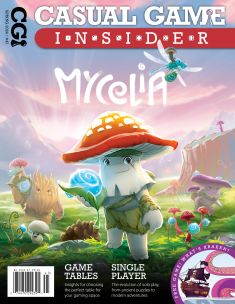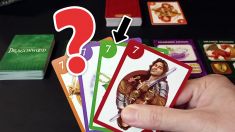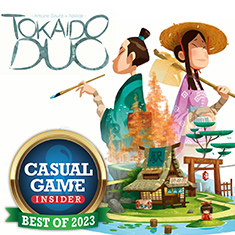Tiwanaku: A Board Game-Puzzle Hybrid of Exploration and Deduction
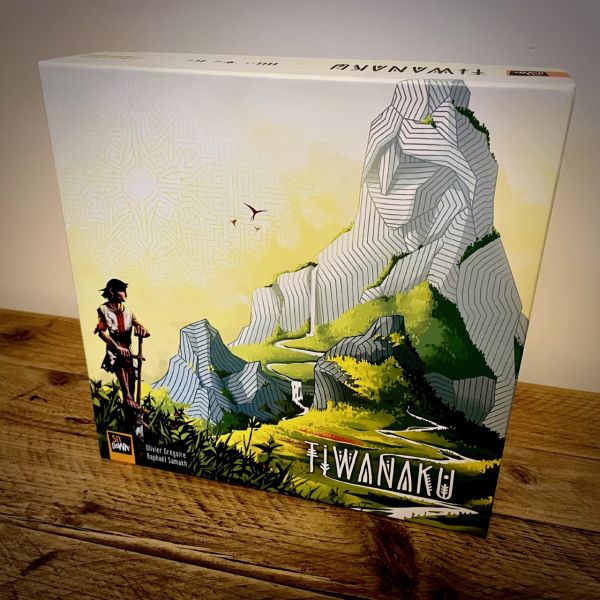
In Tiwanaku, you will lead your tribe through unknown lands, discover unexplored regions, and plant crops while paying homage to Pachamama, the Mother Earth. Follow Pachamama's rules, and nature will reward you on your journey into an uncharted valley; otherwise, you will face Pachamama's wrath. Tiwanaku is an abstract strategy game of exploration and deduction where intuition and timing are critical to victory. It successfully combines puzzle and board game mechanics to deliver a compelling, intriguing, and unique experience.
Tiwanaku is recommended for 1-4 players, ideally played with three, and is suitable for ages 14 and above. A game can last between thirty minutes and an hour, depending on the number of players and the game board size selected.
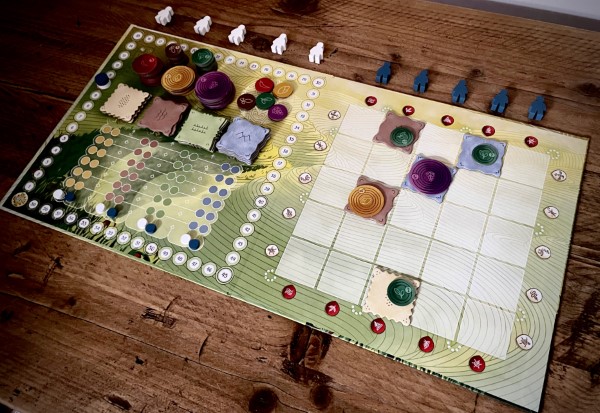
Gameplay
Your goal in Tiwanaku is to explore new terrains and plant suitable crops in the correct places on the board. Each space on the board has only one specific set of terrain and crop, and they may be unknown to the players. Following Pachamama's fundamental principles, you explore and discover terrains, and you must correctly deduce where you should plant crops to avoid losing points. Additionally, the terrain track indicates how many of each terrain you have discovered using diversity paws.
Tiwanaku comes with two game boards, one for short and one for long games. It also comes with twenty scenarios represented by scenario discs that depict a distinct gameboard layout of terrains and crops. After setting up the initial game board arrangement based on the scenario chosen, one can place the scenario disc in the Pachamama wheel. The Pachamama wheel allows you to rotate two discs to match game board space coordinates and reveal terrains and crops as the game progresses. The wheel has two windows. The Discovery window shows the terrain tile associated with given space coordinates, and the Divinity window displays the crop type.
The map of Terrain tiles and associated crops follows specific rules, the Pachamama core principles, which will help players identify unexplored Terrains and crops. The separation principle determines that terrain tiles are in regions of 1-5 spaces, and a region of one color cannot touch a region of the same color, even diagonally. The size of a region limits the maximum value of crops grown within it, starting with a crop of value one and increasing incrementally. The crop diversity principle states that two identical crop values can never be adjacent, even diagonally, and there are no crops of the same type in the same region. All Tiwanaku scenarios respect these principles, which you must use to deduce the terrain and crop of a specific game board space. This "guessing game" significantly reminds me of puzzles such as Sudoku.
You can take an explore action or a divine action on your turn. During an explore action, you can bring one new Quechua meeple onto the board, move a Quechua meeple, and finally "explore" an unknown space to uncover its Terrain type, move up the Terrain track, and score points for all diversity paws on the same level on your Terrain track. During a divine action, you can deduce as many crops as you have meeples on empty terrains, accumulate their respective number of points if your guess is correct, or lose points and finish your turn if your guess is wrong. For every crop you plant successfully, you collect a crop token (one of a kind per player). At the end of your turn, you can offer 1-5 crop tokens to Pachamama to earn 0-10 points.
When the final terrain is revealed, it triggers the end of the game. Starting with the player who revealed the last terrain, players can take one final divine action or pass. Then, every player makes their last offering, and the player with the most points wins the game.
The game includes cooperative and solo modes, adding to the replayability of the game.
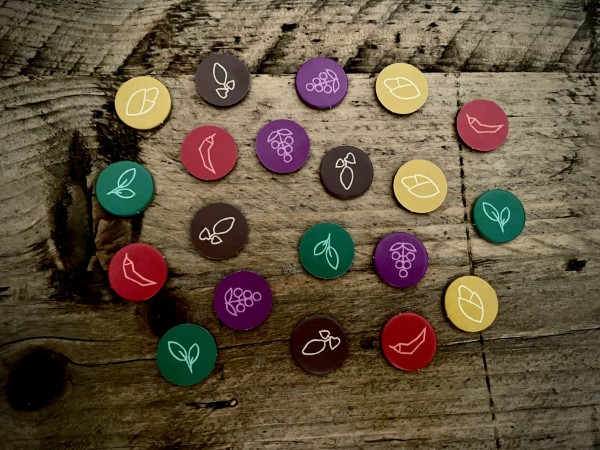
Review
In Tiwanaku, the gameboard is revealed as the game progresses, forcing players to plan and play based on deduction, reasoning, and risk-taking. Its clever design uses the Pachamama wheel and a scenario disk to reveal game board spaces based on their coordinates. Each scenario disk describes a unique game board layout, and with twenty scenarios available, there is plenty of replayability in the game. And once you have played all the scenarios, you can play the Solo and Cooperative modes for a change. Eventually, you will exhaust all your options, though.
Players score points by revealing unknown terrains and deducing which crops to plant. Both phases work as mini-puzzles and remind me of games such as Picross or Sudoku, where there are constraints to be respected for every value on the board. Tiwanaku brings uniqueness to the table by incorporating these mini-puzzles as part of a board game in which mechanics resemble worker placement and area control combined with modular game board exploration.
The overall game mechanics feel distinctive and are straightforward to learn while still challenging, requiring logic and strategy from players. The game setup, teardown, and downtime are quick; Tiwanaku is fast-paced and engaging, works wonders as a gateway game if you are new to the hobby, and is an excellent filler game if you have time to play a full match. The small game board is perfect for short and multiple matches between two players.
All components are neatly designed, and the Pachamama wheel adds to the game's material involvement. Using the wheel is engaging and delivers an intelligent solution to reveal terrain and crops for each gameboard space coordinate set. The Pachamama wheel stands out, is a welcome tactile addition to the gameplay, and helps you immerse yourself in it.
As is typical with abstract games, the actual theme is not represented significantly by the game mechanics. The theme works as a backdrop story for the game's artwork but does not add much to the game's fictional involvement. The game boards are very clearly illustrated, but they may appeal to some more than others. The overall artwork style does not particularly appeal to me, but it does its job and does not get in the way. All elements of the game are carefully designed to facilitate gameplay.
Everything you need to know to play the game without referring to the game rules is comprehensively described on the game boards using player aids.
Social involvement and player interaction exceeded my expectations because board games that rely heavily on solving mini-puzzles are prone to falling into the "multiplayer solitaire" category. In contrast, Tiwanaku excels at player interaction. While the game board is revealed, players simultaneously figure out the solutions to the presented puzzles. Players must compete to stop opponents and be the first to reach desirable places on the gameboard while timely exploring terrains or deducing crops to maximize points acquired. Players are not particularly inclined to use Take That mechanics, but they can give you the upper hand when used correctly. You can use other mechanics against your opponents, such as placing your Quechua meeples to block others' movements. Players interact continuously and competitively, keeping the game engaging and interesting.
Tiwanaku relies heavily on performance contingency instead of random events, and that will undoubtedly appeal to those looking to challenge their logic skills. There is almost no designed uncertainty in gameplay because every game board space is predetermined deterministically for each game scenario. Sometimes you will find yourself in a situation where you must use your intuition to guess the terrains and crops in a specific space, and this is the only moment where luck can turn the odds in or against your favour. Otherwise, the game is determined by the players' agency, planning, and strategy.
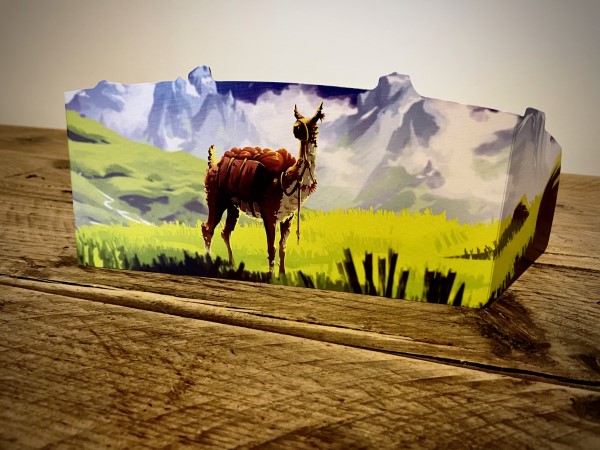
Final Thoughts
Tiwanaku fits the genre of light-themed abstract games with deep strategy. It is fast-paced while its puzzle-solving nature is pleasant and relaxing, and with the right dosage of competition, the game keeps players compelled and entertained. Tiwanaku is the kind of game that keeps you coming back for more until you run out of scenarios to play. Unfortunately, only twenty scenarios are available, and I would advise playing each scenario only once if you have a good memory. All the fun of the game is not knowing what terrain and crop lie in each space and using logic to deduce them. Overall, Tiwanaku is a very enjoyable crossover of an abstract strategy game with mini-puzzles to solve that I recommend for a casual but challenging game.
Pros: Cleverly designed to provide a straightforward yet rewarding game experience
Cons: Limited replayability may leave you wanting more
Disclosure: we received a complimentary review copy of this game.
Note: This article is provided by Roll & Mind.









